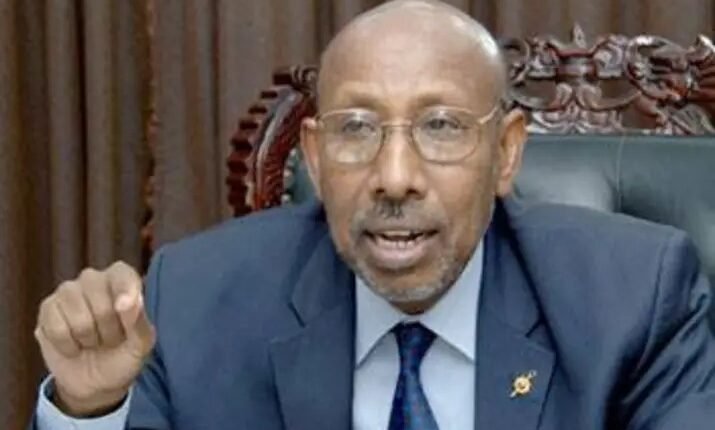A Memo on Having a Dedicated Ministry for Water Resources and Irrigation

Eng. Saif Eldin Hamad Abdullah
With reference to the decision of the Prime Minister to merge the Ministry of Irrigation and Water Resources with the Ministry of Agriculture, and in continuation of the previous memoranda submitted by fellow experts and specialists—which outlined key justifications—I would like to emphasize the importance of maintaining an independent ministry dedicated to water resources and irrigation.
*Introduction:*
Water resources in Sudan are shared with neighboring countries. Sudan shares Nile waters with 10 countries, groundwater with 6 countries, and non-Nile valleys with 5 countries. This entails significant responsibilities and challenges that require specialized management with high professional competence, grounded in scientific and institutional foundations.
Water resources face growing challenges at local, regional, and international levels, encompassing natural, security, economic, legal, institutional, human, political, and geopolitical aspects. The region is witnessing existing and potential water conflicts between neighboring countries, as well as between states domestically.
Water is not an independent sector but rather a strategic link between various sectors, as defined internationally: “Water is not a sector, it is a connector” (World Water Week, Stockholm, 2013). Hence, continuous coordination among all relevant sectors is crucial, including: national security, foreign affairs, justice, media, meteorology, climate, agriculture, hydropower, petroleum, mining, social affairs, environment, livestock and fisheries, industry, investment, river transport, federal governance, and state authorities.
Policies, strategies, and comprehensive and partial plans in the water resources sector require constant updating and coordination to achieve integrated water management.
Water resources legislation demands periodic follow-up on implementation, along with necessary updates to regulate the use and development of these resources in accordance with national, regional, and international standards.
The management and use of water resources in Sudan—particularly in the agricultural sector—suffer from inefficiency, leading to the wastage of water, natural, and financial resources.
The country is witnessing a noticeable increase in pollution rates and unsustainable exploitation of water resources, especially groundwater extracted from the Baggara Aquifer for use in the mining and petroleum sectors. For example, the water used in petroleum blocks (3, 4, and 5) accounts for 10% to 20% of the extracted quantity, leading to a decline in groundwater levels and contamination. It is worth noting that this aquifer covers the states of North, South, and West Darfur, as well as Kordofan, and is shared with South Sudan and the Central African Republic.
The country suffers from weak scientific research in water resources, given the scale and diversity of water challenges Sudan faces compared to regional countries. For instance, Ethiopia has over 31 specialized water research institutes and centers, while Egypt possesses advanced research institutions—unlike Sudan.
There is an urgent need to train and develop a highly skilled professional workforce in water resources, particularly in transboundary waters, negotiation and conflict resolution, political science, water intelligence, diplomacy, international water law, and relevant national legislation.
The current phase calls for enhanced cooperation with regional and international water-related organizations, such as: the Dams Authority, the Food and Agriculture Organization (FAO), the World Health Organization (WHO), the International Commission on Irrigation and Drainage (ICID), UNESCO, and the World Meteorological Organization (WMO).
It is essential to develop national institutions working in water resources to ensure full oversight of agreements and plans related to shared resources with neighboring countries and relevant regional and international organizations (Nile Basin, IGAD, AMCOW, the Arab League).
*Justifications for an Independent Ministry:*
Based on the above, it is evident that maintaining an independent ministry for water resources and irrigation is a strategic necessity. It is illogical for the Ministry of Agriculture—itself a beneficiary of water resources services—to assume these tasks on behalf of the water resources sector. It is worth recalling that previous merger attempts between the two ministries have proven practically unsuccessful, as highlighted by specialists in their earlier memoranda, to avoid repetition.
*First: Overall Strategic Objective*
To secure the supreme national interests and achieve Sudan’s water security by maximizing the utilization of local and shared water resources (Nile, other surface water, and groundwater) with neighboring countries, as they form the cornerstone of the national economy in the present and future.
Second: Key Means
Planning, development, and integrated, sustainable management of various water resources: Nile waters, surface water from rivers and valleys, and groundwater.
Preparing and qualifying specialized personnel in engineering, environmental, climatic, legal, diplomatic, security, political, media, and other fields to safeguard national rights and interests in this vital issue.
Meeting all the state’s water needs (agriculture, hydropower, industry, drinking water, investment, salinity control, etc.), while ensuring integration among water-related sectors and contributing to the formulation of national policies and plans for integrated and sustainable water resources management.
Leveraging Sudan’s comparative advantages (land area, water abundance, geographical location) to enhance regional cooperation, settle disputes, protect strategic interests, and address future challenges.
*Conclusion:*
The Ministry of Water Resources and Irrigation serves as the most critical indicator of the state’s performance and continuity. Sudan thrives when the ministry succeeds and sustains its management, while crises escalate when it falters. Therefore, maintaining the ministry as an independent and specialized entity is a national imperative that must not be compromised.
Eng. Saif Eldin Hamad Abdullah
With over 41 years of service in the ministry, having worked across multiple units and departments, and as a former Minister of Water Resources.
Shortlink: https://sudanhorizon.com/?p=6127

